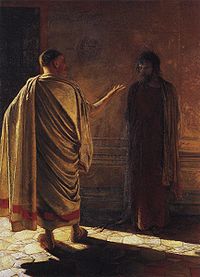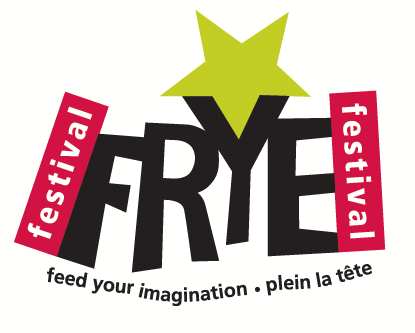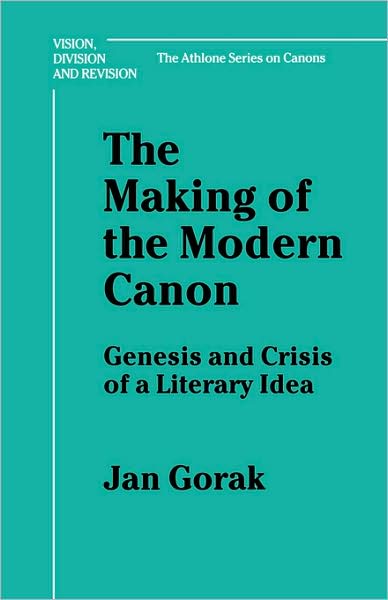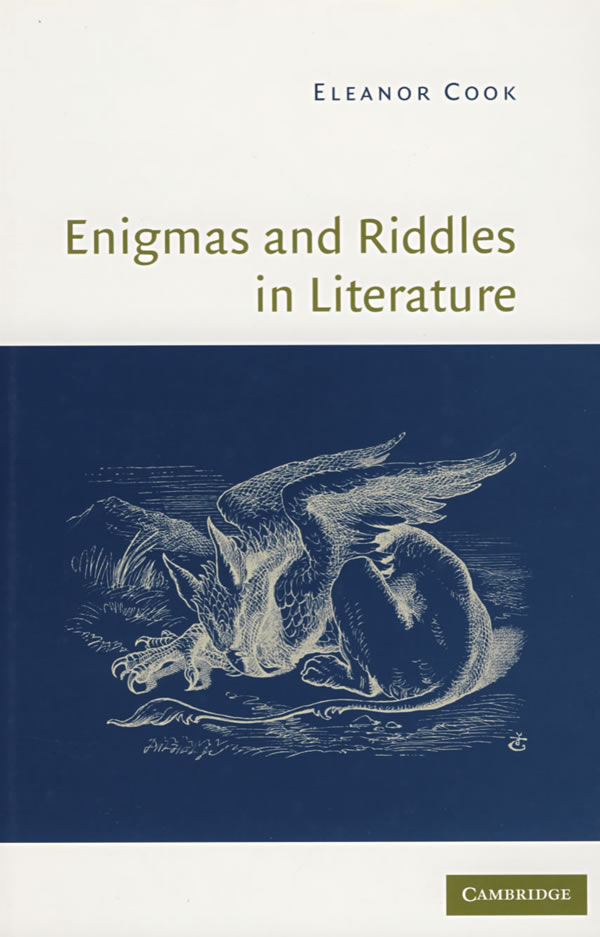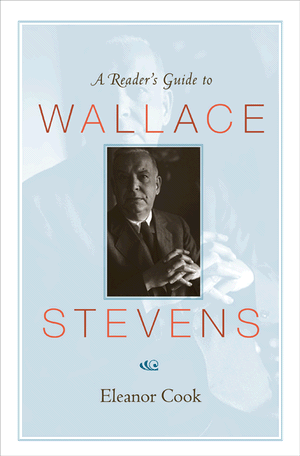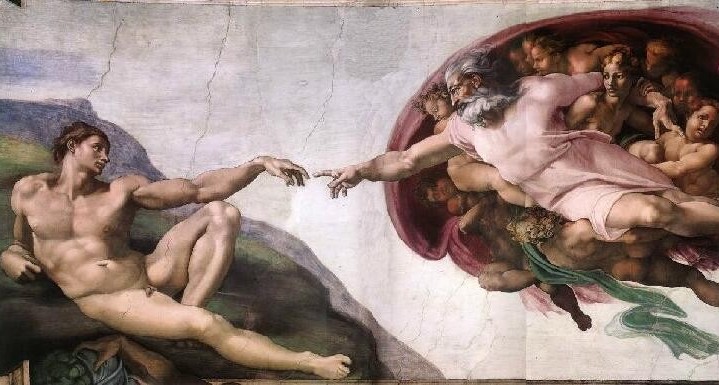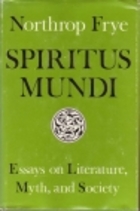
We are delighted to post this response by Michael Dolzani on the question of Frye’s anti-supernaturalism. Michael, editor of several of the Collected Works, will be joining us as a byline correspondent.
I think I understand why Clayton Chrusch refers to Frye’s “anti-supernaturalism,” and his entry puts its finger on one of those issues in Frye studies whose intractability proves how truly central they are. As Bob Denham says, Frye seemed open to belief in all sorts of paranormal phenomena, both the spontaneous ones that occur in séances and the significant coincidences that Jung explained by “synchronicity” and also the deliberately evoked and controlled phenomena of magic and occultism. However, Bob notes that Frye did not think of such phenomena as supernatural. A Renaissance magician like Prospero—or, in real life, Marsilio Ficino—believed that he was drawing upon the hidden powers of nature. Such “natural magic” could be white or black, good or evil, depending upon the will that summons and controls it. Witches may claim to serve the devil, but the devil’s attributes—the cloven hooves, horns, tail—clearly indicate that this kind of devil is merely a nature spirit. The hidden powers of nature can sometimes be imagined as a whole hidden realm, an Otherworld like the Celtic Faerie, and perhaps the Tibetan Bardo. But this realm is not supernatural; in the early 1947 essay “Yeats and the Language of Symbolism,” as well as in the early notebooks it is closely related to, Frye calls it “hyperphysical,” meaning that it is not super-natural, above nature, but an extension of nature. To mistake it as supernatural is an example of what the early notebooks repeatedly call “the deification of the void.”
But if the deification of the void is false supernaturalism, it is certainly a valid question whether Frye believed in a real supernaturalism. I am not surprised that this controversy has erupted in relation to Fearful Symmetry, where Frye is closest to Blake. Blake tended to equate “nature” with “fallen world” in a way that sometimes—misleadingly, I think—suggests that he is the kind of Gnostic who rejected the physical world altogether. That cannot really be true: a bird cannot be a world of delight closed to our senses five if it is merely fallen or illusory. But Blake is pushed in that direction by his repudiation of “natural religion,” all the more so because most of the conventional Christianity of his time and ours is really natural religion in disguise. Natural religion is what happens when the “natural man” [1 Corinthians 2:14], Paul’s term for the fallen aspect of ourselves, tries to imagine the supernatural. The result, as Browning showed, is Caliban upon Setebos, the reason being that the natural man cannot think or imagine beyond the natural. What is the natural? In this context, it is the cloven fiction, the split between the subject and a world of objects alienated from the subject. If the natural man is the subject, God must be the ultimately objectified Object, either projected into the heavens as an inscrutable sky-god (Urizen, Nobodaddy, Shelley’s Prometheus) or into the depths as the Immanent Will of Hardy and his chief influence, Schopenhauer. This is really another kind of deification of the void. Such a God is a Holy Terror, tormenting his followers as he tormented Job, afflicting them outwardly with boils and tragedy, inwardly with the theological nightmares of predestination, the terrors of eternal hellfire, and the intractable guilt of people like Luther.
I find that intelligent Christians of good will are puzzled and put off by the anger of people like Blake and Frye. Such Christians are thinking in terms of a God who is, as Clayton Chrusch says, the beautiful hope of those who are suffering. But Frye grew up in the realm of Protestant fundamentalism, and I grew up within pre-Vatican II Catholicism, with the same rebellious result. Frye, especially the younger Frye, refuses to suppress all the troubling questions; like Job, he stands up and cries out for answers. And unlike Job, but like Blake, he refuses to be shouted down because God has a bigger loudspeaker.
So the natural man cannot be truly spiritual; he can only be superstitious, worshipping and trying to placate a spook conjured by his own anxieties. But Paul’s “spiritual man” is identified by Blake with the imagination. The imagination does not “believe in” God: belief is concerned with the evidence for or against objects, and God is not an object. God is not a “fact,” at least not in this sense. The natural man thinks that, if God is not a fact, he must be a mere fiction or illusion, but it is one of the primary missions of Words with Power to get beyond that impasse.
That is why I think Sara Toth’s essay “Recovery of the Spiritual Other” (in Northrop Frye: New Directions from Old) is an important contribution to Frye studies. Sara observes that, beginning as early as the 1970s, Frye increasingly speaks of a “spiritual otherness.” To the imagination or spiritual man (or woman), God is “other” and yet not objective. In the Preface to Spiritus Mundi, Frye writes, “For Blake and Yeats, on the other hand, there is nothing creative except what the human imagination produces. Stevens polarizes the imagination against a ‘reality’ which is otherness, what the imagination is not and has to struggle with. Such reality cannot ultimately be the reality of physical nature or of constituted human society, which produce only the ‘realism’ that for Stevens is something quite different. It is rather a spiritual reality, an otherness of a creative power not ourselves; and sooner or later all theories of creative imagination have to take account of it.” Autobiographical aside: my first contact with Frye was in 1976. At the age of twenty-five, I wrote him a fan letter thanking him graciously acceding to my visiting father-in-law’s request to autograph a copy of Spiritus Mundi for me. In my letter, I specifically mentioned the “spiritual otherness” passage as seeming like a fascinating new direction for him. He wrote back saying that he was working on a book on the Bible, and that this was one of the issues it was important to get right.
Frye is distancing himself in that Preface from Blake’s identification of the human imagination as God. Although Blake is right in a sense, there is different aspect of God which remains other. What is an otherness that is not objective? It is a “spiritual” otherness. And what does that mean? Well, I wish I knew. I edited Words with Power, including the chapter “Spirit and Symbol” that is Frye’s deepest exploration of this, and still feel I do not entirely understand it—though I feel that it does mean something, and though I have been trying to grasp it since I was twenty-five. I think Frye himself was looking for clues in other writers: Sara notes his interest in Buber’s I-Thou relationship. I myself have been struck by how, of the two great Protestant theologians of his time, Frye seems more fascinated by the neo-orthodox Barth than the liberal Tillich. What I think he found in Barth was the vision of a spiritual otherness smashing through the limitations of human desires, human understanding, human words: a transcendence whose revelation or kerygma shatters the mind-forg’d manacles of the fallen world. When David Cayley asks Frye, “Why do you take it as given that God is transcendent?” Frye responds, “I don’t know what else is transcendent. Otherwise, you’re left with human nature and physical nature….Human nature is corrupt at the source, because it has grown out of physical nature. It has various ideals and hopes and wishes and concerns, but its attempts to realize these things are often abominable, cruel, and psychotic. I feel there must be something that transcends all this, or else.” When Cayley asks, “Or else what?” Frye responds, “Or else despair.”
